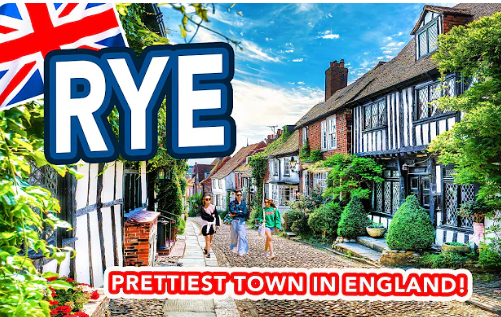This is Berlin
A city where anyone and everyone can fit in. If you fit in, it means you feel like you belong with a particular group of people. That’s because Berlin’s vibrant cultural scene has no equal. It’s a city of contrasts, the old and the new. Not to mention all of the history to go through here. The past and the present intermingle, they mix, they combine. So, welcome to Berlin, a city that’s sublime.
To know about Berlin you must read this article of mine and get an idea about it. So start reading without delay
So, guys, we're beginning this journey in Berlin, where I'm teaching you English at the east side gallery.

The east side gallery is the longest stretch of surviving Berlin Wall. And the Berlin Wall was destroyed in 1989 when East Germany and West Germany unified and Germany became one country again. Now, because of this, this wall is considered to be a monument to freedom. And you can see all of the incredible street art here.
So you might say, I wish I.
The best street artists in the world come here to get their art on this wall. And because of this, I’m going to teach you some wall idioms in English. And the first one is to be a fly on the wall. And now you’re kind of being a fly on the wall, because to be a fly on the wall means to watch something or listen to something in secret without the person knowing. You’d often use this if you want to listen to a secret conversation.
(Berlin)
could be a fly on the wall and hear what they are saying. The next idiom is to be bouncing off the walls. If you’re bouncing off the walls, it means you’re full of energy, full of excitement to do something. So now I’m bouncing off the walls to continue teaching you English in Berlin.

So bouncing off the walls, I made my way across the city to the next destination. I wonder if you can recognize it. This is Brandenburg Gate.
So here we are, guys, at one of the most famous gates in the world, the Brandenburg Gate. Now, this is the last surviving gate to the city of Berlin, and it’s now a symbol of peace and unity after the turbulent history of Germany and Europe in the last 100 years or so. If you describe something as turbulent, it means it’s characterized with unrest and disturbance. But this gate now is place of peace. And in English, we have an expression which is make love, not war. It’s a little bit cliche, something that’s.
Over said and starting to lose its meaning.
But make peace, not war, is something we say to promote peace. And people come here every day to promote peace at this gate.
Nowadays, Berlin is a great city to find a peaceful place for some quiet time and reflection. You can walk through beautiful green parks, or you can take a stroll around the Holocaust memorial,
where we will continue this lesson.
(Berlin)
So I’m in the Holocaust memorial here now. So this is a memorial for all of the Jews that died in the second world War. And there are hundreds of. Of these slabs, so flat, pieces of rock carved flat. That’s a slab. And they’re in lines, but they kind of form a wave like pattern on the top because some are higher, some are lower. You can just walk around here, think about history in Europe, things that happened in the past, and it’s very powerful. In English, we have an expression which is, if we let go of our past, we’ll never learn from our mistakes.

So I guess that's why memorials and monuments like this are so important. And, yeah, let me know in the comments if your country or city has a memorial and what is it about, what is it to remember? Let me know in the comments.
So it’s time to take another walk around Berlin to find our next english lesson. I came across incredible architecture, fascinating buildings, but I decided to take our next stop outside the Reichstag.
So, guys, I’m hanging out now in this awesome park, and it is sweltering. It is really, really hot. And, yeah, it’s a lovely day.
And what’s that behind me?
Well, that is the german parliament, the Reichstag. Reichstag. If you’re german, correct my pronunciation in the comments, but that’s where they call the shots. If you call the shots, it’s an informal way of saying make the decisions. So they call the shots for Germany here, and I’m just gonna hang out in the park and chill whilst they do it. So, guys, as I chill here for a moment, I’ve got a question for you.
Okay, so after going to and fro for the last few hours, it’s time to have a break and get something to eat. If you go to and fro, it means you go in one direction and then the opposite direction a number of times. So, anyway, it’s time to eat something typical from Berlin. Currywurst.
For you to practice your English, would you prefer a job where you have to call the shots?
Where you have to make the decisions, but also you have to take responsibility?
Or would you rather a job where you don’t have to call the shots and you have less responsibility?
So, guys, currywurst is Berlin and Germany's. Most popular street food.
Let me know in the comments and practice your english. And it was actually invented here in Berlin in 1949 by her hoover. And she was able to trade with british soldiers after the Second World War and get her hands on some great ingredients from Britain, or that you could find in Britain, such as ketchup, curry sauce, or curry powder, and also Worcester sauce. Notice that I say Worcester sauce, not Worcester sauce. She could get her hands on these ingredients. That means she was able to acquire these ingredients, and she invented the currywurst sauce, which you eat with typical bratwurst, sausages, and chips.

Delicious. After eating my currywurst, I feel energized to continue the lesson around Berlin. One building stuck out a mile. If something sticks out a mile, it means it is very obvious and clear to see. This is the Berlin television tower
So, guys, that behind me is the Berlin tv tower. It’s an iconic building built in the 1960s, and it is so tall. If I went up there, my legs would turn to jelly. If your legs turn to jelly, your legs go weak, and you feel like you cannot stand up because you’re scared or very nervous and you’re full of adrenaline. My legs would turn to jelly. Cause, you know me, I’m scared of heights. So, I don’t know. Maybe next time.
Okay, so I chickened out. That means I didn’t do something because I was too scared. That tower is too tall. Anyway, let’s finish our lesson in Alexanderplatz.
A city with so much history and a city full of life and culture. I’m traveling the world and I’m teaching you English. Where do you think I should go next?
So here I am now in Alexanderplatz, which is a central square in Berlin. It’s kind of a place where people come and meet up here. And how would I describe Berlin? Well, it’s also really a great city for young people. It’s a youthful city, and there’s a lot of nightlife and fun stuff to do. I could see myself living here. If you can see yourself doing something, it means you can imagine it.
So there you go, guys. Where could you see yourself living? Could you see yourself living in Berlin? Let me know in the comments. Make sure you like and subscribe to the channel to watch more videos. Learning English in different cities and different places around the world. Thank you for watching. This has been Berlin, and I’ll see you in the next class. Bye. That was the incredible city of Berlin.




